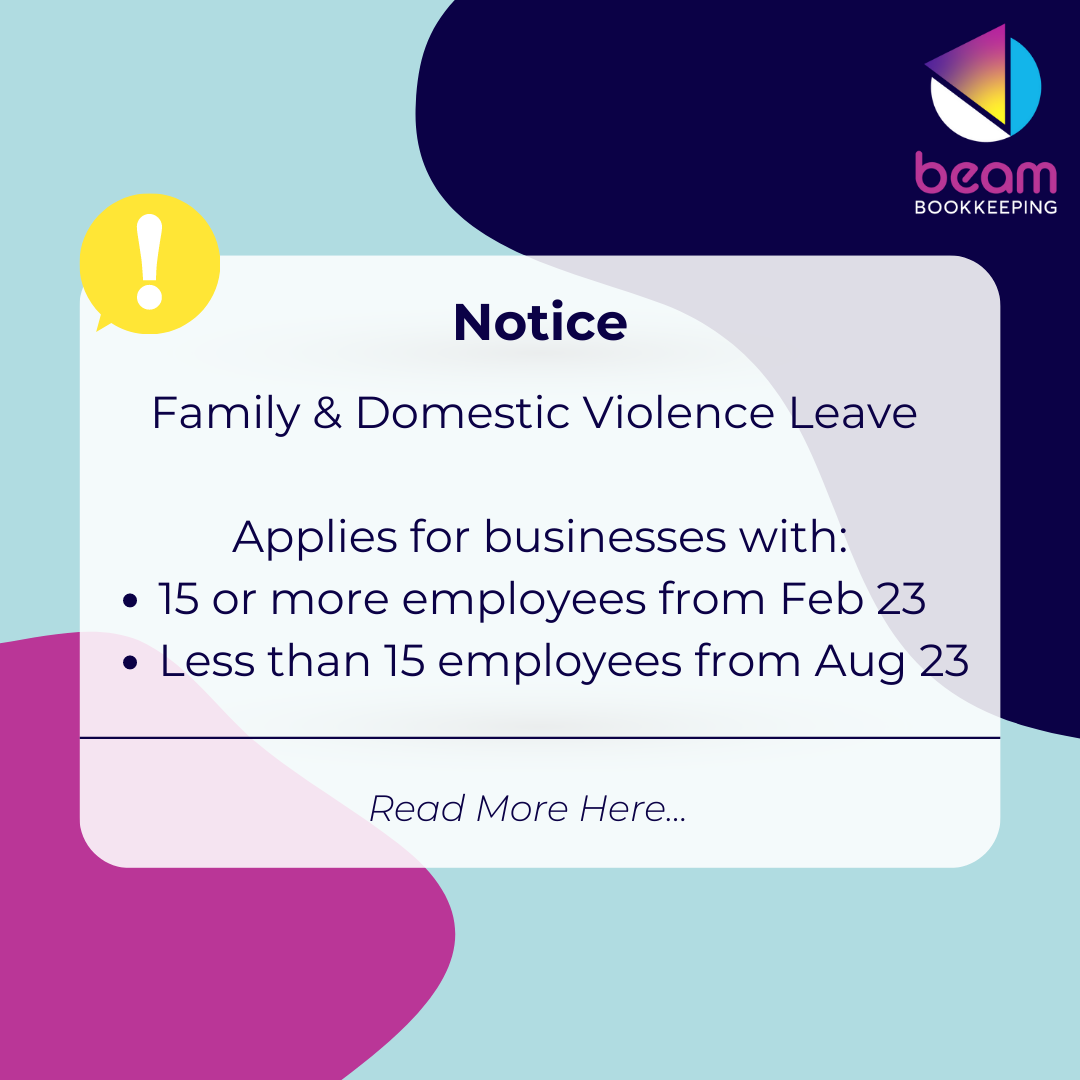
Family & Domestic Violence Leave became law from February 2023
Family & Domestic Violence Leave (FDVL) now applies to businesses with 15 or more employees. For those businesses with under 15 employees, this entitlement will be available from 1st August 2023. Knowledge, awareness and planning can help employers support their employees, meet with workplace obligations and protect their workplaces.
Here are some of the main features of this new paid leave type.
Employees, including part-time and casual employees, can take 10 days of paid leave annually. This full 10 days is available to every employee as of 1st February 2023 and does not accumulate year to year. On the anniversary of each employees start date the entitlement balance resets to 10 days.
This paid leave is used if the employee needs to do something to deal with the impact of family and domestic violence. This could include, for example, the employee:
- making arrangements for their safety, or the safety of a close relative (including relocation)
- attending court hearings
- accessing police services
- attending counselling
- attending appointments with medical, financial, or legal professionals
An employer can ask their employee for evidence that shows the employee took the leave to deal with family and domestic violence. If they are unable to provide the requested evidence, it is up to the employers discretion whether or not to pay the leave. An employer can only use this information to satisfy themselves that the employee is entitled to the leave.
Types of evidence can include:
- A statutory declaration
- Documents issued by the police service
- Documents issued by a court, or
- Family violence support service documents
Employers should work with their employee to discuss and agree on how this information will be handled, as mishandling could have adverse consequences.
Some practical pieces of knowledge when processing this leave:
- It doesn’t break an employee’s period of continuous service and will count towards hours working in that week for the purpose of calculating overtime
- There is no adjustment in payroll if a person leaves employment part way through an anniversary year
- FT and PT employees are paid their full pay rate for the hours they would have worked if they weren’t on leave
- Casuals are paid their full pay rate for the hours they were rostered to work.
- Super is paid on this leave
For more information we suggest you make yourself familiar with this
’Employer Guide to Family and Domestic Violence Leave’ from The Fair Work Ombudsman.
This guide runs through:
- How this leave interacts with other paid leave
- How it interacts with existing workplace policies and employment agreements
- Record Keeping of evidence like payslips
- Creating a workplace response to family and domestic violence and more
Recent Beam News:
